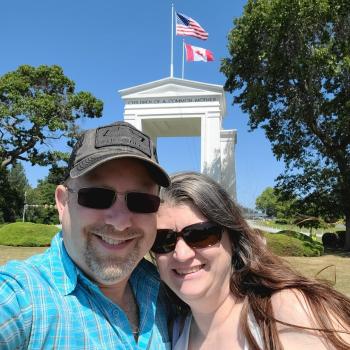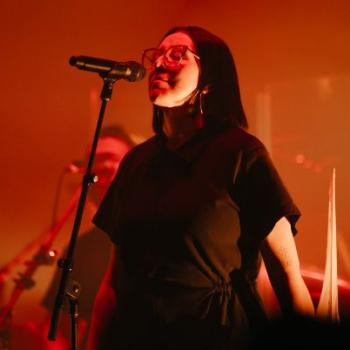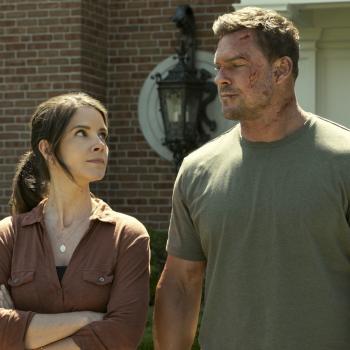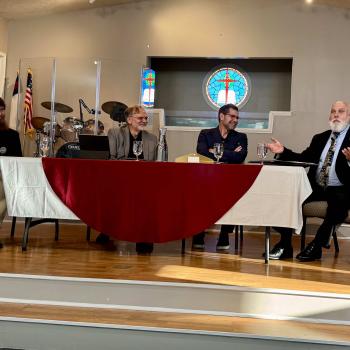Editors' Note: This article is part of the Patheos Public Square on Myth, Imagination, Fairy Tales, and Fantasy. And Faith. Read other perspectives here.
As I write this, my children are watching a DVD. An airship glides over a reddened landscape, while a comet glows in the sky. A man with long hair raises his arms, inhales, and calls down fire on the land, burning everything before him. The perspective shifts. On a pinnacle of rock, a boy with a gray arrow on his head and a lemur on his shoulder watches death and destruction draw near. They are watching the two-part finale of Avatar: The Last Airbender, a fantasy TV series drawing heavily on Asian culture. They are watching it, if my count is correct, for the fifth time.
Telling stories is one of the things that makes us human. We are story-making animals. But from a religious (specifically Christian) perspective, we are also story-made animals. The Gospel of John speaks of the Logos, the divine Word, as the one through whom the world was made. We tell stories because we ourselves are stories. In the words of J. R. R. Tolkien, "we make still by the law by which we're made." Stories are true insofar as they imitate the story that tells us.
A story may do this in many ways. A historical story imitates the story told by human actions in the past. A scientific story imitates the story told by the regular behavior of the physical world. But these kinds of stories only make sense in light of a deeper, underlying set of stories about who we are and what sort of place the universe is. These deeper stories are best called "myths." We all have them. We are made by them. We would not be human without them.
Mythical stories and more "literal" kinds of stories interact in complex ways. The same story may work on several levels at once. Most Christians believe, for instance, that certain sacred stories in our tradition (particularly the Resurrection of Jesus) describe things that really happened in history. Our myth — our basic story about ourselves — would not be the same if we were to conclude that the resurrection of Jesus was purely a mythical story about the meaning of life, and not also a story about what happened to one particular dead body in first-century Palestine. For some Christians, this means that the whole concept of "myth" is suspect and that only stories about what really happened in history (or carefully delineated "parables" with a clear point pertaining to the "real world") are meaningful. For other Christians, the master narrative or "worldview" of Christianity must be used as a rigorous standard to regulate and if necessary exclude myths that might conflict with it. But the reality is messier than that.
All of us are shaped by a confused tangle of stories that interact in unpredictable ways. Those of us who come to reject one story about our lives and accept another are always haunted by the ghosts of the stories we no longer believe. We are all palimpsests — manuscripts on which story after story has been written over the faded lines of earlier stories. Orthodoxy is valuable as a way of telling a coherent story and shaping our lives in faithfulness to the story we find most compelling. It is not and cannot be a way of excluding rival stories from influencing us, or even of bringing all the stories that coil and sizzle around us into some sort of perfect hierarchical order.
And so my children hear the Bible stories, and they hear Greek mythology (including a Narnia-Odyssey mishmash I produced at the command of my three-year-old, in which Odysseus meets Aslan), and they watch Avatar: The Last Airbender. They work, in their own way, at bringing these stories into coherence with each other. I am doing the same. None of us will ever be finished, at least in this life.
I'm completing this piece some hours after I first began it. Aang has defeated the Fire Lord again. Balance is restored to the universe. And my children have come back from the Methodist church service they attend on Sunday evenings with my parents. Episcopalianism in the morning, Methodism in the evening, and pseudo-Eastern philosophy in between. Now my older daughter has curled up on the sofa to read a Three Investigators mystery. Another kind of story, another underlying myth.
3/9/2016 5:00:00 AM




